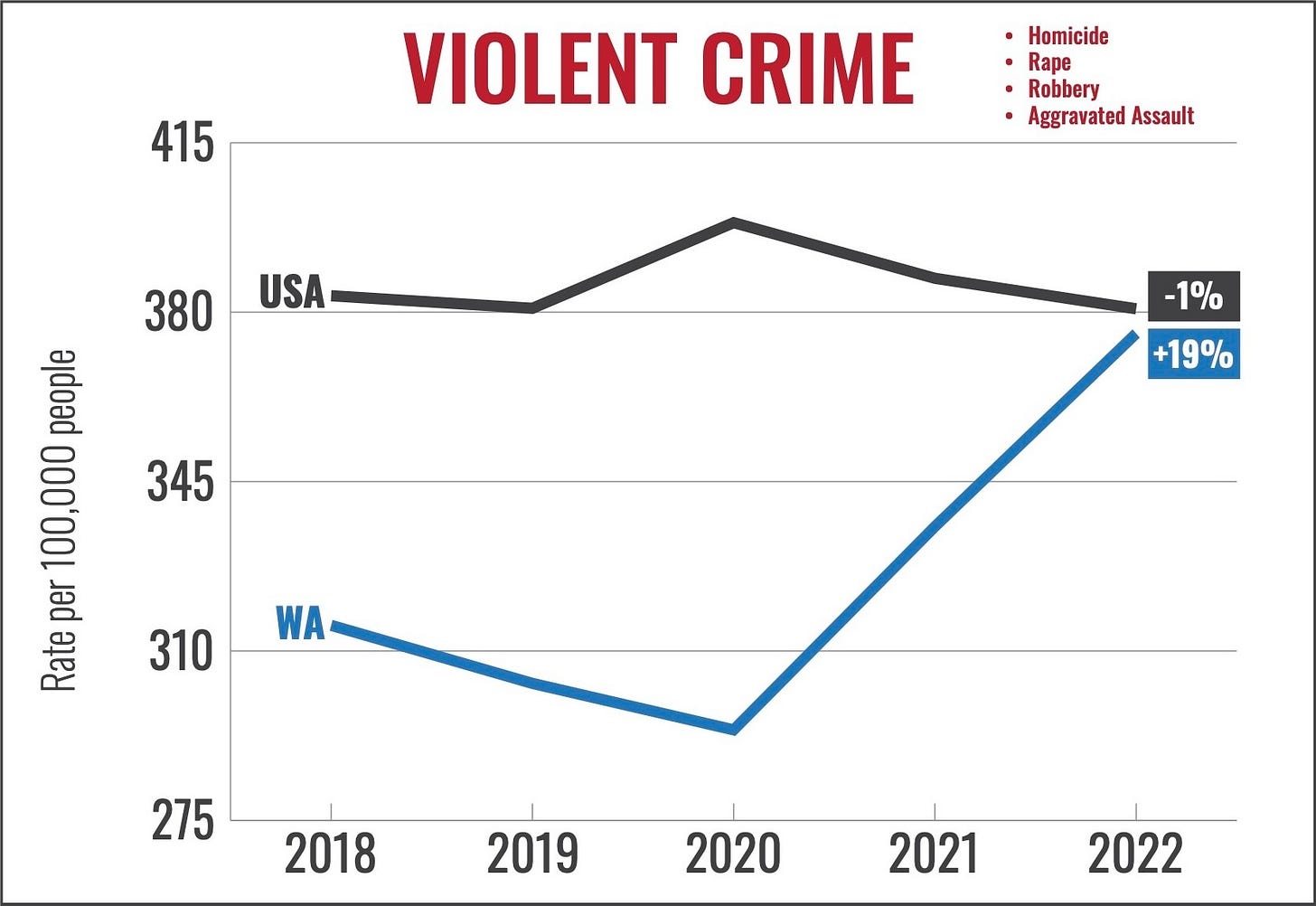"Ever since white people set foot on this land"
Racial framing creeps into Water Steward position
Public input is becoming a performance—not a process. From canceled infrastructure projects to ballooning bureaucracy and racialized rhetoric, local leaders are using staged support and selective storytelling to push costly agendas like the proposed Water Steward office. This isn’t grassroots democracy—it’s a manufactured illusion of public demand meant to justify decisions already made behind closed doors.
Astroturfing is the political equivalent of fake grass: artificial, polished, and manufactured to look like something it’s not. It’s the deliberate effort to give the impression of broad public support when, in reality, the voices are few but coordinated. Unlike real grassroots campaigns—where volunteers outnumber dollars—astroturfing flips that formula: special interests drown out the public.
And astroturfing is thriving in Clallam County.
The misinformation campaign
Commissioner Mark Ozias famously scrapped the decades-long, $20 million Towne Road relocation project after citing “petitions with hundreds of signatures” calling for the road to remain closed. But public records told a different story: only 98 signatures opposed reopening, while 140 supported it. One false narrative derailed a major infrastructure project and contributed to the tragic outcome of a local family losing their home—emergency responders were delayed by a five-mile detour.
Commissioner Mike French also played his part. Though he supported a resolution to complete Towne Road in December 2023, he later encouraged protesters to bring 50 people to a commissioner meeting to sway the board. He even admitted in an email that this tactic could “motivate” the board to change its decision—lending influence not to facts or policy, but to performance politics.
And it didn’t stop there.
Leaked emails from the Director of Olympic Theatre Arts revealed that a commissioner asked for 2–3 supporters to speak at every public meeting in favor of a controversial proposal to impose a Cultural Access Tax, knowing vocal opposition was likely. Not spontaneous, not organic—just coordinated appearances to give the illusion of broad support. That’s astroturfing.
So who’s behind it? Commissioner Randy Johnson opposes the Cultural Access Tax. Commissioner Ozias has taken to brushing off questions with, “It’s just not any of your business” and “You’ll have to figure that out all by yourself.” Commissioner French said he couldn’t recall if he’d made the request—but added that it may be discovered through public records.
The Water Follies
Now the Charter Review Commission has taken up astroturfing.
At a recent meeting, Water Steward Committee Chair Paul Pickett gave a glowing progress report, citing support from community figures like Ann Soule (League of Women Voters) and Craig Smith (Gates Foundation/North Olympic Land Trust). The report named seven citizens backing the proposal—but not a single opponent. This, despite widespread opposition raised at Town Halls, via email, and in public comment.
When asked why the report ignored dissent, Pickett explained he was focused on how people “articulated the problem.” Apparently, if you don’t think it’s a problem, your opinion doesn’t count.
That’s not a report. That’s message control.
Commissioner Ron Richards defended the report and said the overwhelming input he received was in favor of creating a Water Steward position. “This is a very important position to have, only for information gathering, and it doesn’t have a thing to do with control, and I wish you would let your people know that, Jeff.”
When I asked who he meant by “your people,” Chairwoman Susan Fisch blocked him from answering. If my people are subscribers of CC Watchdog, then Ron Richards is one of my people, too.
We’ve heard repeatedly that the Water Steward would be “non-regulatory” and simply gather information. But we’ve seen what “non-regulatory” really means. The Clallam Conservation District is non-regulatory, too—and yet it meters private wells and digs trenches through people’s property without permission. The non-regulatory Trails Advisory Committee nearly halted Towne Road by recommending that the roadbed become a trail. And the Marine Resources Committee, also “non-regulatory,” is pushing for evictions on private property.
Words like “non-regulatory” and “informational” have become political camouflage—sound soft, act strong.
Ballooning bureaucracy
What started as a volunteer position has ballooned into a proposed county department of 4–5 paid staffers—potentially funded through a property tax hike. Even supporters admit the cost is a problem.
“I think our biggest hurdle here is going to be the cost,” said Commissioner Christy Holy. “That’s what we have to sell to the people.”
Sell is the right word. This isn’t citizen engagement—it’s marketing.
Richards went further, suggesting the Prosecuting Attorney’s office could be downsized to fund the new position. In other words, public safety might take a back seat to this new bureaucratic vision.
Racial framing creeps in
As commissioners word-smithed their latest draft of the Water Steward “problem statement”, Commissioner Nina Sarmiento praised a change referring to piping irrigation ditches as “water management decisions,” adding: “We’ve been managing water ever since white people set foot on this land.” The remark went unchallenged by fellow commissioners.
If she had named a different ethnic group, how would that have been received? When did a conversation about water become about race?
One public commenter, Stephanie Day, responded: “The fact that race has anything to do with the Water Steward position is absurd. As a Mexican-Indian, I find that placing me in a victim status is offensive.” Sarmiento later issued a vague apology—not for what she said, but for “how it came across.”
It was a telling moment. What began as a conversation about resource management is drifting into ideological territory, complete with racial undertones and implied guilt.
Pre-decided “public” processes
Then there’s the Homelessness Task Force. Their Homeless Housing Plan is still a draft, with a final vote pending from the Board of County Commissioners. But the summary document reads: “Public hearing with the County Commissioners occurred May 27, 2025, when the plan was discussed and adopted.”
One problem: May 27 hasn’t happened yet.
If the outcome is already decided, what’s the point of the public hearing?
These performative gestures—whether it’s town halls, task forces, or petition drives—are increasingly a facade. A carefully-staged theater production to manufacture legitimacy and simulate public engagement.
The result? Astroturfing becomes the operating system of government.

The bottom line
No one’s saying there aren’t real problems to solve. Water rights, homelessness, infrastructure—these issues matter. But solving them requires honesty, accountability, and humility. Instead, we get top-down messaging dressed up as bottom-up concern.
Astroturfing isn’t illegal. But it’s a betrayal of public trust.
We deserve a government that actually listens—not one that merely pretends to.
“A vocal group”
Dale Jarvis, Sequim Good Governance League founder and private county resident who influences Sequim City Council policy and HR decisions, is now warning the public that “a vocal group has been attacking members of the Charter Review Commission.” He’s encouraging the community to take the Charter Review survey after reading SGGL’s “important perspectives.”
Make your voice heard. Take the survey (read some other “important perspectives” in this article) and let the Charter Review Commission know what you think about how county government should operate. You can email all CRC commissioners by contacting the Clerk of the Board at loni.gores@clallamcountywa.gov and specifying “CRC” in your message.







Once again Jeff CCWD has pushed me to deliver my 2 cents....
Who's racist? Why does 1/2 the tribal population not live here? What is their situation? Have many rejected their victim status and live outside tribal culture? Where can one find those statistics? Do they see something more valuable in escaping an economically depressed county? Did they seek a more fulfilling life with more opportunity elsewhere? Heritage is one thing but lets get real. One hundred and fifty years ago disease and starvation were real things for everyone. What good is your culture when 1/2 your children don't survive to age 10. Is that something to celebrate? If your going to remember only the good that's not accurate. Go fishing and never return ambushed by a hostile neighboring tribe. Somehow make it to age 70 and be toothless in chronic pain having only soup to eat if you are lucky. In 1880 life expectancy was 39 years old. I suspect less for Native Americans. Were injustices perpetrated? Yes. But not by me or anyone living today. And what's the problem now? Please give me a rational argument. I'm open minded. Are some people racist? Of course. Always have been a few and always will be. If it wasn't color then it would be religion. But the majority of people are above that and we have equal rights and if someone violates those rights their are stiff penalties civil and criminal.
So all this acknowledgment that things have been stolen and we are guests is disingenuous to me. I stole nothing. In 1880 my ancestors were in Iowa. I contribute and pay taxes. A lot of them. Outside of Social Security and Medicare the Government gives me nothing. As a people you have more wealth and OPPORTUNITY to thrive than ever before. So get off the pity pot and make something of yourself. Now its in our societal social contract to care for those that cannot care for themselves. But this doesn't extend to those that "will not".
This is getting worse by the minute. These individuals are so corrupt and could care less about any public input. The public has been completely pushed out of the so called democratic process. These people need to be held accountable for their actions. And miss Nina, I'm white, male, and damn proud to be. Call me a racist and see what happens.!!!